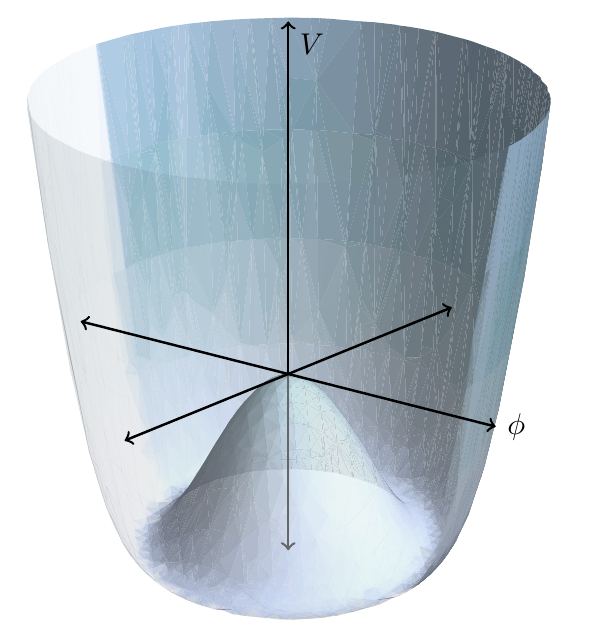Particles gone wild: the Higgs mechanism, uncensored
Posted by David Zaslavsky on — Edited
If you’ve been following the news about the discovery of the Higgs boson, you’ve probably noticed that it gets reported in two ways. There are the actual presentations with the full details of the experiments, which can only be understood by particle physicists their authors well, I’m assuming somebody knows what all of it means. Anyway, then there’s the other way. Sensationalized science journalism. “Hey, look, it’s a God Particle!!!11!” And Other Misrepresentations.
I think some of us want a middle ground, though. Certainly I would have, not too long ago. So if you’re not actually a physicist, but you’re also not afraid to look at a little math, this post is for you. (This is adapted from a post on Physics Stack Exchange.)
Spontaneous symmetry breaking
In order to understand the Higgs mechanism in detail, you need to know about two concepts that are involved in quantum field theory. The first is spontaneous symmetry breaking. This is actually a pretty simple idea: suppose that the physical laws that govern a system are symmetric in some way, meaning that you can make some kind of transformation on the system without changing the …